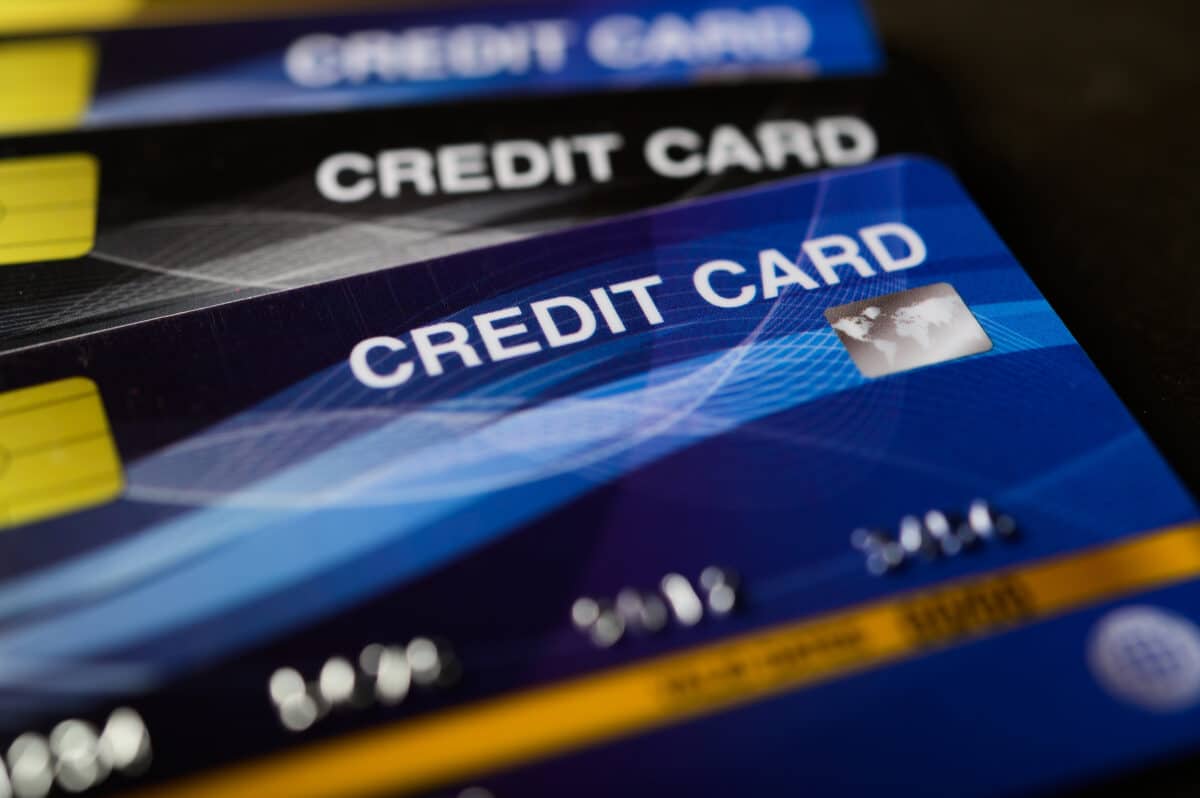7 Best Credit Cards for Students with No Credit
If you are a student with no credit, you can still get a credit card that can help you build a credit score and access wider financial opportunities in the future. Here are the best credit cards for students who are just starting their credit journey.

Table of Contents
- Best Credit Cards for Students with No Credit
- #1 Discover It® Student Cash Back Credit Card
- #2 Discover it® Student Chrome
- #3 Capital One® Platinum Secured Mastercard®
- #4 Bank of America® Customized Cash Rewards Secured Credit Card
- #5 Chime® Credit Builder Visa® Credit Card
- #6 Discover It® Secured Credit Card
- #7 U.S. Bank Altitude® Go Visa® Secured Card
- What Is a Student Credit Card?
- How To Choose a Student Credit Card With No Credit
- Types of Credit Cards for Students
- How to Build Credit With a Credit Card
- FAQs
There are various credit card options for students who do not have a credit history. Many credit card issuers recognize the fact that there are individuals who are just starting their credit journey and may have no credit or limited credit when applying for a card – like students.
Student credit cards are the easiest credit cards to get approved for as students with no credit. This is because these cards are exclusively designed for students and have flexible credit and income requirements. Most of them also come with rewards and usually do not charge extra fees which can be beneficial to students. Like other credit cards, student cards also report to the major credit bureaus and can help build up your credit score from scratch. Discover it® Student Cash Back is one of the best credit card options for students with no credit as it has no minimum credit requirement, reports to the major credit bureaus, offers multiple rewards, and charges no annual fees.
Secured credit cards are also a good option for individuals who are just starting their credit journey. Anyone who meets the age and income requirements and is able to pay the minimum security deposit can easily apply for a secured credit card and get approved for it.
Below is our list of the best credit cards for students with no credit, along with their fees, benefits, and specific eligibility requirements.
Best Credit Cards for Students with No Credit
Consider any one of the following student credit cards if you don’t have a credit score yet. Before applying for any card, compare all the features and benefits and determine which one is right for you.
| Lender | Scholaroo rating | APR Rate % | Minimum Credit Score |
|---|---|---|---|
 Discover it® Student Cash Back Best for cash back rewards Visit website | 18.24% - 27.24% | No minimum credit score | |
 Discover it® Student Chrome Best for multiple unique credit card designs Visit website | 18.24% - 27.24% | No minimum credit score | |
 Capital One® Platinum Secured® Best for a low minimum security deposit Visit website | 30.49% | No minimum credit score | |
 Bank of America® Customized Cash Rewards Secured Great secured card for rewards Visit website | 28.24% | No minimum credit score | |
 Chime® Credit Builder Secured Visa® Best for no fees and no interest Visit website | 0% | No minimum credit score | |
 Discover it® Secured Great for building credit with no fees Visit website | 28.24% | No minimum credit score | |
U.S. Bank Altitude® Go Visa® Secured Card Best for dining and takeout rewards Visit website | 29.99% | No minimum credit score |

Discover it® Student Cash Back
Best for cash back rewards

Discover it® Student Chrome
Best for multiple unique credit card designs

Capital One® Platinum Secured®
Best for a low minimum security deposit

Bank of America® Customized Cash Rewards Secured
Great secured card for rewards

Chime® Credit Builder Secured Visa®
Best for no fees and no interest

Discover it® Secured
Great for building credit with no fees
U.S. Bank Altitude® Go Visa® Secured Card
Best for dining and takeout rewards
#1 Discover It® Student Cash Back Credit Card
#2 Discover it® Student Chrome
#3 Capital One® Platinum Secured Mastercard®
#4 Bank of America® Customized Cash Rewards Secured Credit Card
#5 Chime® Credit Builder Visa® Credit Card
#6 Discover It® Secured Credit Card
#7 U.S. Bank Altitude® Go Visa® Secured Card
What Is a Student Credit Card?
Student credit cards are cards that are typically aimed at young adults or students who don’t yet have a credit history. These cards help you build your credit so you can qualify for better rates and unsecured loans or cards in the future.
Student credit cards often come with perks like cashback bonuses or no annual fees, so you can earn rewards while working towards building your credit history. They also come with easy approval and more generous terms than other cards for people with no credit.
Most student credit cards don’t require a minimum credit score, but some may ask for a security deposit that serves as your initial credit limit. These cards are meant to be used for a short period so you can build your credit score and qualify for better deals.
How To Choose a Student Credit Card With No Credit
When you’re choosing your first credit card as a student, you should compare different cards and their features, and read the terms and conditions carefully before making a choice.
Here are some of the factors to consider when choosing a student credit card:
- Interest rates: You should always look for a student credit card with low interest rates to make sure you are getting the best deal on your purchases. Some cards offer a very low introductory APR but beware of higher interest rates when the intro period is over.
- Annual fees: Check what kind of annual fee is associated with a particular student credit card and decide if it’s worth it for you. If the card offers a lot of rewards that you can benefit from, it might be worth the fee. Most student credit cards, however, come with no annual fee.
- Rewards programs: Many student credit cards offer rewards programs that can help you save money when shopping. Look for a card that offers discounts and bonus points to maximize your savings.
- Security deposits: Unsecured credit cards can save you money at the beginning as they do not require any security deposits which will save you money initially. On the contrary, secured credit cards generally require a security deposit of $200 or higher, which you can get back as soon as you qualify for a better deal. Cards that require a deposit (secured credit cards) are often given to people with no credit history, like students or young adults, to give them a chance to build their credit profile while providing some security to the card issuer.
Types of Credit Cards for Students
Finding the right credit card for a student without a credit history involves understanding what types of cards exist and their associated benefits.
Here are the different student credit cards available and their features:
- Secured credit cards: One of the more common credit cards, secured cards requires a security deposit that will serve as your credit limit. As a result, credit limits on secured cards of typically lower than unsecured cards. They allow students with no credit history the opportunity to build their credit score and show that they can handle credit responsibly. These are easier to get approved for and can help you build credit.
- Unsecured credit cards: The most common type of credit card, unsecured cards don’t require a security deposit and typically offer higher spending limits than secured cards. You need to have a good credit score to qualify for an unsecured credit card but may get better interest rates. These are more difficult to be approved for people with poor credit.
- Prepaid credit cards: This is a card that can be used like a credit card without the need to be approved. The cardholder funds the prepaid credit card and it typically has a lower spending limit. The benefit is that you can have a credit card that doesn’t require a credit score to be approved, but the downside is that it won’t help you build a credit history. These cards are good for developing budgeting skills. They usually do not offer rewards and have lower spending limits.
- Store credit cards: These types of cards are usually issued by retailers and department stores and can be used to purchase items at the store. Store credit cards have lower spending limits than other types of cards and are often easier to be approved for, making them a good choice for students with no credit history who want to start building their credit profile. These cards may come with various store-specific discounts but may have low spending limits and higher interest rates.
How to Build Credit With a Credit Card
There are a few ways that a student credit card can help you build a good credit score:
- Always pay on time: It is important to make your payments on time every month. Try to pay off your balance as soon as you can and pay more than the minimum amount required. Keep in mind that late payments may also attract a penalty fee. Making payments on time is the most important way of building and maintaining a good credit profile as your payment history makes up 35% of your FICO credit score.
- Keep a low credit utilization: If you maintain a high credit utilization ratio, you may be seen as a risky borrower. Try to maintain a credit utilization ratio of 30% or lower as this may also get you better interest rates from lenders. You can also increase your credit limit, which in turn will lower your credit utilization and raise your FICO score.
- Use your card regularly but responsibly: It is important to use your card regularly, but only if you can afford to do so. Using your credit card can help you build your credit and the best option is to repay the full balance at the end of the month to avoid unnecessary interest charges.
- Set up AutoPay: Using AutoPay will ensure that you are paying your account on time every month. Many credit card companies offer a discount for cardholders who use AutoPay, as an incentive for making payments on time.
FAQs
What are the best type of cards for students with no credit?
Many student credit cards do not have a minimum credit requirement and are best for students for their rewards and no extra fees. They can also help build credit from scratch with responsible use.
Secured credit cards are also great for individuals with no credit. As these credit cards require a security deposit, it helps reduce the risk for the lender, making it easier to get approved for them.
Can you get a student credit card without a credit score?
Yes, you can get a student credit card that doesn’t require a credit history and use it responsibly to build up your credit. Discover it® has great options for student credit cards that do not have a minimum credit requirement.
Can I get a Capital One student card with no credit?
Students can apply for the Capital One® Platinum Secured Mastercard® as it doesn’t require a credit history. This is ideal for students as pre-approval doesn’t trigger a hard credit check and you can put down a security deposit as low as $49.
Can I get Discover It® student cash back with no credit?
The Discover It® Student Cash Back card is aimed at college students without a credit history. You don’t need a credit score to apply and there is no annual fee. You can also apply for the Discover It® Chrome for Students. Both these cards come with cash back rewards.
How can an 18-year-old with no credit get a credit card?
Students and young adults can get a credit card at 18 even if they don’t have a credit history yet. Look for student cards that are designed for first-time borrowers. However, you will need to provide proof of income to qualify, which can even be your monthly allowance transferred into your account.
In case you are not a student but are struggling to find a card due to no credit, a secured credit card would be the best option for you.







